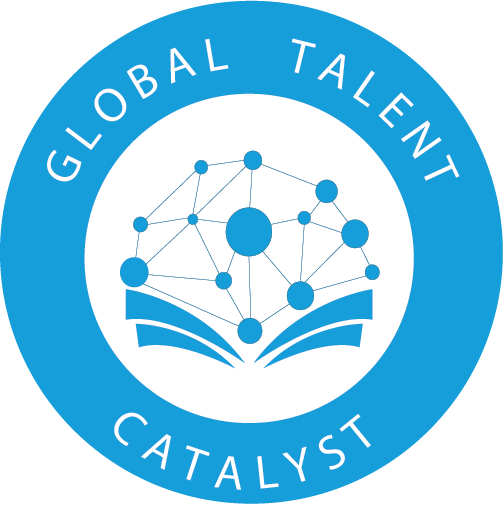Super Offer by Materials Research Centre (MRC), BUET in association with Global Talent Catalyst
Atomistic Computational Modeling of Materials: DFT Simulations using VASP
Join us to gain hands-on expertise in DFT simulations and quantum mechanics, advancing in materials science under MRC,BUET and remain in the repository of Global Talent Catalyst.
Welcome to a unique opportunity to immerse yourself in the revolutionary world of computational materials science! This course, hosted at MRC, BUET, and Global Talent Catalyst, is designed to give you the skills and hands-on experience to succeed in Density Functional Theory (DFT) simulations and atomistic modeling. By the end of this program, you’ll have a solid understanding of quantum mechanics fundamentals and mastery over leading materials modeling tools. Join us to start building expertise that will set you apart in both academic and industrial research.
Why Take This Course?
- Master Core Quantum Mechanics Concepts: Dive into essential principles from Schrödinger’s equation to Density Functional Theory, providing a strong foundation in quantum mechanics and materials science.
- Hands-on Training with Leading Software: Use VESTA for structural design and VASP for simulations, gaining skills to visualize, model, and analyze material properties with real-world relevance.
- Career-Boosting Expertise in Materials Science: Ab-initio simulation and DFT knowledge are increasingly valuable across research fields, opening doors in academia, high-tech manufacturing, and beyond.
- Practical Experience with Real-World Materials: Develop skills to understand the structural, optical, dielectric, electronic, and mechanical properties of materials, with applications to both bulk and 2D systems.
Course Structure:
Each session is carefully crafted to guide you through essential concepts and practical simulations in computational materials science.
Lecture Overview
Lecture 1: From Schrödinger Equation to Density Functional Theory
- Schrödinger Equation
- Born-Oppenheimer Approximation
- Hartree-Fock Approaches
- Thomas-Fermi Theory
- Hohenberg-Kohn Theorems
- Kohn-Sham Theory
Lecture 2: Quantum Mechanical Terms
- Exchange-Correlation Functionals (LDA, GGA, Meta-GGA)
- Periodic Systems
- Bloch’s Theorem
- Basis Sets
- Pseudopotentials
- Cutoff Energy
Lecture 3: Introduction to VESTA, VASP, and Materials Modeling
- VASP Input Files
- Structural Modeling and Visualization in VESTA
- Input Commands
- VASP Output Files
Lecture 4: Structural and Optoelectronic Properties of Bulk Materials (Si, Rb₂NaInCl₆)
- Structural Relaxation
- Lattice Parameters and XRD Data Analysis
- Band Gap
- Density of States (DOS)
- Dielectric Properties
- Optical Properties (Absorbance, Reflectivity, Refractive Index)
Lecture 5: Phonon Stability, Thermal Properties, and Bonding Nature of Bulk Materials (Si, Rb₂NaInCl₆)
- Phonon Band and DOS
- Temperature Dependence of Heat Capacity, Entropy, Free Energy
- Electron Localization Function (ELF) and Bond Nature
Lecture 6: Mechanical Stability and Properties of Bulk Materials (Si, Rb₂NaInCl₆)
- Elastic Stiffness Tensor Matrix
- Mechanical Stability
- Young’s Modulus, Bulk Modulus, Shear Modulus
- Pugh’s Ratio, Poisson’s Ratio
- Cauchy Pressure and Ductility
- Debye Temperature
Lecture 7: 2D Slab Design and Property Analysis (MoS₂)
- Design of Vacuum Slab (MoS₂)
- Structural Relaxation
- Band Structure and DOS
- Dielectric and Optical Properties (MoS₂)
Please fill up the form for registration
Md. Jahidul Islam
Md. Jahidul Islam is a lecturer in the Department of Materials and Metallurgical Engineering at Dhaka University of Engineering & Technology (DUET). He obtained his B.Sc. and M.Sc. degrees in Materials and Metallurgical Engineering from the Bangladesh University of Engineering and Technology (BUET). He teaches and actively conducts research in the field of materials science. His primary focus is on computational materials science, specializing in density functional theory (DFT) simulations using the Vienna Ab initio Simulation Package (VASP). Through DFT, he investigates the electronic, dielectric, optical, and mechanical properties of advanced materials, such as perovskite halide semiconductors and heterostructures. He places a strong emphasis on materials with potential applications in the fields of energy and electronics. Jahidul's work aims to enhance the understanding of these materials at the atomic level, ultimately helping to optimize their performance for real-world applications.

